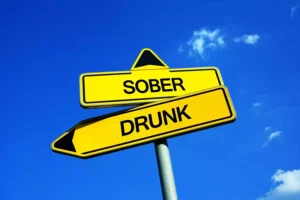
Fortunately, recovery is possible with guidance from professionals and support from peers. Effective treatment often involves a combination of behavioral therapies, counseling, and medication management. Detox, residential, or outpatient programs may be part of a person’s treatment plan, depending on the severity of the addiction. The initial use may feel harmless, making it easy to overlook the potential dangers of continued use.
Ready to Start Your Healing Journey?
Relapse is when a person who has been trying to quit or has stopped using the substance or engaging in the behavior starts again. It’s a common part of the recovery process and doesn’t mean that the person has failed. While the exact number of stages may vary among different sources, a consensus identifies key phases in the development of addiction. Chronic alcohol consumption, for example, can lead to a variety of non-neuronal physiological issues, contributing to serious comorbid conditions such as cancer and central nervous system disorders. One important thing to remember is that a relapse can occur at any stage of recovery. Aftercare and ongoing support are essential for successful, long-lasting recovery.

Recent Activity
While many might categorize any drug use as abuse, it is essential to differentiate between experimentation and habitual use because the motivations and contexts can vary significantly. Even all of the assistance and support of others would not significantly help individuals whose choose the correct cycle of addiction. brains drive them to choose to use drugs and whose brains do not allow them not to make a choice not to use drugs. Alcohol or drug use at this stage is typically causing significant problems in the person’s life, yet they continue to use despite the known harmful consequences. The person may experience feelings of powerlessness as attempts to quit or cut back on one’s own repeatedly fail.
- A person becomes tolerant to that amount and needs more to avoid the onset of withdrawal symptoms.
- It’s no longer just about pleasure; it’s about avoiding the discomfort of not using.
- Learning to navigate life without the crutch of substances is a critical part of recovery.
- Psychological addiction involves the mental and emotional aspects, such as cravings and preoccupation with the substance, while physical addiction includes physiological changes and the development of tolerance.
- For example, nicotine has a short half-life, which means smokers need to smoke often to maintain the effect.
- For example, human studies have benefited greatly from the use of brain-imaging technologies, such as magnetic resonance imaging (MRI) and positron emission tomography (PET) scans.
- It’s not uncommon for someone with a substance use disorder (SUD) to feel hopeless, and unable to stop negative behaviors that are wreaking havoc on their physical and mental health.
Some General Problems with Stage Models of Addiction
- The reasons why substance use disorders and mental disorders often occur together are not clear, and establishing the relationships between these conditions is difficult.
- Addiction is a multifaceted condition that extends beyond mere substance use, encompassing a wide array of psychological and physiological elements.
- This phenomenon is common with many prescription medications and substances according to Merck manual research on Tolerance and Resistance To Drugs by Shalini S. Lynch, in 2022.
- More of the drug is needed to achieve the same effect, and withdrawal symptoms become more pronounced when use is discontinued.
Studies have identified that heightened stress reactivity, such as increased cortisol responses, may predispose individuals to mood disorders and substance use disorders, particularly alcohol use disorder (AUD). Another person may take a substance to relieve negative feelings such as stress, anxiety, or depression. In this case, the temporary relief the substance brings from the negative feelings negatively reinforces substance use, increasing the likelihood that the person will use again.

Alcohol Rehab
Addiction’s manifestation is not uniform; it varies significantly among individuals. Research from the National Institute on Drug Abuse (NIDA) suggests that genetic factors contribute to 40%-60% of an individual’s susceptibility to addiction, affecting the severity and progression of the disease (NIDA, 2020). Furthermore, the method of substance use can greatly influence the development and intensity of addiction, necessitating personalized treatment approaches. Recovery is rarely linear, and the chronic nature of addiction can mean that relapse is sometimes part of the process. Relapse rates for drug use are comparable to those of other chronic medical conditions.

For example, someone with an alcohol addiction might fantasize about how they’ll feel when drunk, or they could start stocking up on alcohol to prepare for a binge that is days away. Either way, these activities make it very difficult to Substance abuse stop the incoming relapse as they intensify cravings. When challenged with a difficult event, someone with an SUD often turns to a substance because it’s routine, and it can give them relief, if temporary and superficial. Learning to deal with negative emotions is a key aspect of overcoming cravings.

This stage can bring about strong feelings of guilt, shame, or hopelessness, which might make the person feel like giving up on recovery. However, relapse is also a critical point where intervention, support, and learning from the experience can help the person get back on track. It’s important to address the reasons for the relapse and reinforce the strategies that help prevent future relapses. Understanding the physiological aspects of addiction is crucial for effective treatment strategies. It is not only about managing withdrawal symptoms but also about addressing the deep-seated changes in the body’s physiology that sustain addiction.
Ongoing recovery from active drug addiction involves several vital aspects, such as sobriety maintenance, coping strategies, physical and mental health well-being, lifestyle changes, continued learning, relapse prevention, support systems, etc. Drug abuse refers to the harmful or hazardous use of psychoactive substances, including legal and illegal drugs. Drug abuse is the second stage of the addiction cycle, where individuals engage in hazardous consumption of substances, leading to adverse effects on both mental and physical well-being, social relationships, or overall quality of life. The World Health Organization (WHO) defines substance abuse as using a substance in a harmful way.
